Devon Trevarrow Flaherty's Blog
June 30, 2025
Book Review: Bunny

I read Bunny by Mona Awad because I was about to attend an event with the author. Out of the books available by the featured authors, Bunny was one that I already intended to read since many people over the past year had mentioned it, especially in conjunction with Yellowface (R. F. Kuang), another book I planned to read (still plan to read). Bunny was kinda what I expected, though part of what I expected was for it to be a little out there, a little unhinged—so I couldn’t anticipate everything. I am glad I read it. It was not my cup of tea, but I know several people whose cup it would be. Also, there’s a lot to think about and explore, though it is really modern and current and basically horror.
Samantha is the reject of her writing MFA cohort at Warren University, a New England Ivy League-esque college. It doesn’t help that she loves being alone and maybe a little depressed, or that her cohort is four joined-at-the-hip, ridiculous women who call each other “Bunny.” But when she suddenly receives an invite to one of their secretive workshops, she ditches the only friend she has to fall down the bunny-hole to some really dark and surprising places.
I have been reading a lot of books like Bunny lately, though this one was published in 2019. What kind of book is that? New horror? Gen Z-style horror lit? It’s not just horror. It’s not only a slasher. It is many other things. And this one in particular borders on the literary, especially in content. I have also read quite a bit of Japanese and Korean literature in the past couple years, and I feel like Gen Z horror is borrowing from the imported styles. Lots of body horror. Dysthymia. Layers of allegory and metaphor. Domesticity (or work) mixed up with creepy people and trippy situations. I might be missing some things. I was getting The Vegetarian (Han Kang) vibes and also Julie Chan Is Dead (Liann Zhang), which is a new one that I happened to read prior (and which nestles solidly in the social media world while this one is so very academic). I also read The Honeys (Ryan La Sala) right after, which was like Bunny for YA.
Honestly, I didn’t enjoy it that much, but I am glad that I read it. Like I said before, I know some people who would enjoy it. There was a pretentious tone going on, which felt a little ironic considering the satire that is attempted. You know, that voice that hates on everyone till there is no one left? And a couple other writing style things: sometimes the metaphors were weird enough to distract, and the writing was so current with its styles and phrases (and not just the bunnies) that I sometimes found it obnoxious. Also, the hearing-thoughts-aloud thing was a little messy. With some fine-tuning, it could have been a powerful indicator of what was actually happening, of the twists, but no.
Why was it not my cup of tea? It was gritty and had plenty of violence mixed with sex.
Why was I glad I read it? It would be a great book to teach (for older peeps). In the end, there are at least two metaphors for the story as a whole, or I guess I mean two ways to read it. Which makes for some fascinating conversation.
The following paragraph will not have spoilers, exactly, but may change the way you approach the book. So maybe you don’t want to read it before?:
Bunny can be read two ways, the second way in two ways itself. It can be a book about being a writer/artist. Or it can be a book about mental illness. The mental illness interpretation can go full-hog or half-. You could read it and think, “I see both ways. I am going to say it is like two books in one.” I think that works too, but you’ll probably lean toward one interpretation or the other. Begin with your feet on the ground. Decide at the end. I lean toward the reading of the writing life (big surprise), but find that I cannot ignore the mental illness interpretation even though I was happily reading without it the whole time. Durn. Can you also just take it at face value, a scary, postmodern, post-feminist fairy tale? I think so. But you should probably be aware there is a super-intentional other-story happening here, about artistic expression and/or mental illness.
Kinda-spoilers over.

Do I want to read the next one? What? There’s a next one? We Love You, Bunny drops on September 23 and is both a prequel and sequel where we go deeper into the lives and stories of the bunnies.
Karen on Goodreads calls Bunny “really fun and sharp and shivery, with a macabre fairy-tale overlay that gives it a unique spin on the coming-of-age tale.” I say yes to all that. A lot of readers call it unhinged, but honestly it wasn’t as unhinged as some of the other stuff I’ve read recently. I have put it in some peoples’ hands already, even with the complaints that I have as a reader. Was it meant for me? Maybe yes, maybe no. But I was interested, entertained, along for the ride.
June 18, 2025
Book Review: Interior Chinatown
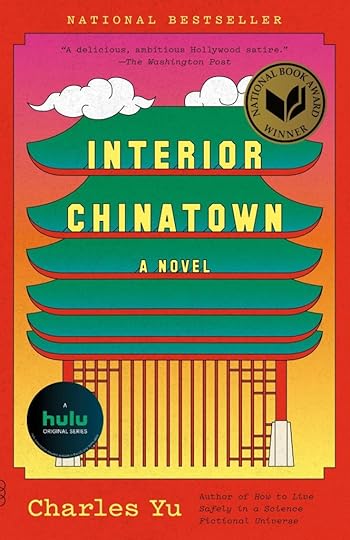
I had almost no expectations when I bought Charles Yu’s Interior Chinatown and then slid it from the shelf then opened it to read it in the few days I had left for this book-club-read. I’m happy with the cover, but it would be impossible to set a reader up for exactly what they’re going to read because Interior Chinatown is fresh. Unique. A happy amalgam. Of course, with any boundary-stretching literature, it’s going to take a little time to figure out the rules and the wherefores. But if you just relax, that takes little time here, and you’ll be enjoying the Vonnegutesque mash-up of literary forms to tell a highly satirical bildungsroman of one Generic Asian Man.
Willis Wu has been working his way up the ladder of the cast of Black and White, a procedural police drama shot at Golden Palace restaurant. He has been Generic Asian Man Three, Generic Asian Man Two, Generic Asian Man One. But there is still a gulf between him and the success of his father and Older Brother, as Kung Fu Guy. To be Kung Fu Guy is all he’s ever wanted. But when he finally gets his chance to grab it unconventionally, will it be what it seemed? And will it be worth it?
I wonder if I had heard so little about this National Book Award Winner and international bestseller because its height of fame was when we were all locked away in our Pandemic bubbles. (It was published right before lockdown.) I resent this title not floating more often to the top of book discussions, because it is a wonderful book. I was so very pleasantly surprised by the innovation, the neatness, the nuanced emotional depth, the fun ride (and some lols) as well as the real history and immersive settings and engaging characters. I have said before I am so over New York City and LA stories, but I’m not sure this LA story isn’t just part of the allegory for the greater Chinese-American experience. There are layers of extended metaphor swirled up with imagination (Willis’s), like great therapy peeling back layers of the onion. What is the actual story here? We’re not 100% sure. But we know what it means, and we had a heck of a (great) time reading it.
Honestly, I don’t have that much more to say. Interior Chinatown is a book I’ve certainly never read before. It looks like a screenplay on the page, but it is using the form to be a novel. Every sentence, including the stage directions, the sub-headings, are there so on purpose. There are times when the text looks more like a novel, but that’s okay because we are meant to know that this is not actually a screenplay. And I loved the slowly unfurling hints about the reality behind things. He’s the sensei. No, he’s his dad who works as a sensei. No, he’s his dad who works as an actor playing a sensei. No… whatever. He’s different things in different layers/versions of the story. We understand and we’re having fun. At 266 pages with tons of white space on the pages, I flew through this one, marveling all the way.
Actually, one more thing. Rarely do I read a book and think, “No. I could never do anything like that.” I don’t think I could ever do what Yu has done here. He yanked us bodily up into a satire about being Asian in America while also playing cover-to-cover with form (seamlessly, cleanly) yet was clear about everything from his point to his blocking, whirled us around in three different realities that all played off one another, then set us back down enlightened (by both information and character). And I laughed and had fun.
Ten out of ten.

Charles Yu had one novel before this one, and I already have it on order. (How could I not buy a time travel book by someone compared with Vonnegut for my Vonnegut-, time-travel-loving husband?) That one is How to Live Safely in a Science Fictional Universe. He also has two short story collections, Sorry Please Thankyou and Third Class Superhero. I’m not sure there’s another novel coming; he works in the film industry, as well (and he’s a lawyer).
He attended Berkeley around the same time as Hua Hsu, which I remember because I visited there (the town, not the school) twice around the time they were there. (I have family there.) We’re not far off in years, him and I. He started off in poetry, like that other contemporary California author, Tommy Orange (and non-Californian contemporary novelist, Kaveh Akbar). (Are they all buddies? Rivals?)
He’s been published and honored in some pretty swanky places. He helped establish a Taiwanese writing prize (it looks like in memory of his parents, perhaps?).

“Because they’d also, in the way old people often do, slipped gently into poverty. Also without anyone noticing” (p21).
“But the widest gulf in the world is the distance between getting by and not quite getting by” (p21).
“The Emperor’s job was to present these plastic trays of steaming delicacies to a family of blond people somewhere in the middle of America, and then bow to them, while off-screen, in the shadows, a gong sounded (and further off-screen, in the mists of history, you could hear the collective weeping of a civilization going back five thousand years)” (p49).
“Frustration boils into indignation which condenses into something like, how funny is this shit? Because at some point, this shit is kinda funny” (p57).
“Working your way up the system doesn’t mean you beat the system. It strengthens it. It’s what the system depends on” (p95).
“I’ve got the consciousness of a contemporary American. And the face of a Chinese farmer of five thousand years ago. Asian Man. It’s a fact. Look it up. No one likes us” (p166).
“She says that telling a love story is something one person does. Being in love takes both of them. Putting her on a pedestal is just a different way of being alone” (p170).


Taika Waititi produced a ten-episode miniseries on Hulu that Yu made of Interior Chinatown. I am watching it right now and it is good, funny sometimes, but as usual I hate to watch things that don’t translate from the book, die. I loved the book. Let’s see if I can love the show for itself.
June 3, 2025
Book Reviews: Demon Copperhead and David Copperfield
I have a lot to say about Demon Copperhead by Barbara Kingsolver and David Copperfield by Charles Dickens. So I’m going to fly through the reviews as best I can.
Synopsis: Loved Demon Copperhead. Made me look back and realize I actually like most of the Pulitzer-winners that I’ve read. (The Goldfinch had me feeling otherwise for years.) Also had a few strange experiences with the reading, which I will detail below. Appreciate David Copperfield, but not my favorite Dickens. In fact, I was yelling at the car playing the audio because I was so frustrated with some narrative choices.
Even though I read Copperfield because I was about to read Copperhead, I’m going to save the chief attraction for last, and begin with the classic. I read it first. It came first.

David Copperfield is a very large book, 175 years old. I knew it would be a slog. (I do love A Christmas Carol, but it’s so much briefer.) Therefore, I found myself an audio copy and listened during my 10-hour drive to and from a writing residency in not-east Tennessee. (And once again I am reading a book in the place where it was written, in this case on a farm in rural Appalachia (though the foothills). This happens to me surprisingly often, by accident. I’m referring to Copperhead here. You’ll see.) I still had hours of audio left when I returned. The audio is more than 34 hours.
First: it was worth it. It was very similar to reading The Adventures of Huckleberry Finn (Mark Twain) before reading James (Percival Everett). Both James and Copperhead stand on their own, but there is so much missed without reading the book it was adapted from. I’ll just say it now: chances are you’ll read Copperhead without Copperfield, and that’s okay. But doing so gives you a deeper, more contextual experience when you’ve just read the classic.
I was pretty impatient with Copperfield, even though I was listening to it. (Some people say that Copperhead is too long, but it felt like a breeze, to me. I’m not being facetious. I thought Kingsolver tightened things up admirably.) Dickens is ridiculously long-winded in David Copperfield, which I am told is because he was being paid by installment, but I also understand it to be because people didn’t have much to do of an evening except read some long-winded story together. And their attention span and patience were generally much better.
The yelling at the car was because some of the plot turns and characters were actually infuriating, and I don’t mean the villains (though they fall prey to the Victorian idea that bad guys look like bad guys). Dora was the worst. And Copperfield’s relationship with her was toxic and weird, all the way through. Also, you know because of the stupid choices regarding her that Copperfield makes, that she’s gonna have to be a casualty to the larger story, and it’s like, “Why? Why paint her into this tragic corner?” Dora’s a big part of the story. Yuck. (There is also a fair amount of older man-marries-woman-who-is-his-charge-in-some-way, which I know some modern readers freak the heck out about. Admittedly, it was a bit over-the-top in this one, even for me, who has a stomach for it (and its societal context) usually.)
Such drama! Such tears! Dickens can go on for pages about a description or a transition, repeating ideas until you’re bored to tears, and then he’ll round a corner, and something will finally happen and all the characters dissolve into tears, anger, fear, just about any giant emotion, throwing their bodies around and, just, crying. Like all the time. There are also a number of tricks Dickens uses to keep his first-person POV which don’t quite work (like going someplace just to listen at a door? Like being a random witness called for who-knows-what reason? Like getting inexplicable letters or running into people). I was already balking at some of this when near the end, Copperfield goes to tour a jail with Tommy. Um, why? And that those two prisoners are the ones featured on the tour is laughably ridiculous. Word-of-mouth or a letter would have sufficed.
At the same time, Dickens is a brilliant writer, and Copperfield is important not just for the well-drawn and diverse characters, the humor, the intricate plot, the turns of phrase, but also because Dickens was writing to expose the mistreatment of children and the poor. He was pointing at victims of the social structure, including women. Copperfield is an important book in history and also a classic for a reason. But it’s long. And it has some issues, owing partly to the way books were written, sold, and consumed at the time.

And then I picked up Demon Copperhead. I was in with the lyrical, descriptive, and voice-y writing from page one, yet I still had to adjust before I could read it fluidly. (This happens to me with plenty of books. I am told this is the way people read my books. It takes some adjustment.) Because of the type of story it is (same with Copperfield), we’re not asking any big questions about the plot; we are on a journey. Modern readers mostly like a “mystery,” a question to ask, from page one (or at least that’s what publishers tell us). There is not really a specific question we’re asking here, just “What will become of this kid?” Copperhead is a character-driven life-story. Likely, you will be swept up into it, eventually. I was.
Copperhead won the Pulitzer in 2023. It also won the Women’s Prize. It also won a number of other things. It has a Goodreads rating of 4.48, which means a vast majority of readers really like or love it. It is now available in paperback (which took three years!). And I loved it. It’s frankly just a great book.
The voice is so strong and endearing. The writing is great. It is funny and tragic. It is engaging. I thought it suffered a little from the sprawl of it all, but that’s thanks to the pattern it was given and the type of book it is (see earlier paragraph). Because this is an adaptation, even more than James. It follows the plot, the order of scenes, directly. It has almost all the same characters, just with modified names, like David to Damon, Copperfield to Copperhead. (See below.) Kingsolver did not event this story, but she did a freaking amazing job at moving it into rural, Southern Appalachia, the 90s and naughts. What was the vulnerability of Victorian children is now the vulnerability of entire communities before the opioid epidemic and crisis. There are other issues at play here, but that is the main one.
I was not depressed by Copperhead’s story or Demon’s circumstances because 1) the book does have a certain amount of levity, including humor; 2) I knew exactly what was going to happen to these people because I just read Copperfield; and 3) our narrator is an older version of Demon, so we know that at least he’s going to be alive to tell his story. What I did find upsetting was the occasional realization that Dickens wrote this story in the 1850s and Kingsolver was able to still tell it now. Things have changed, but they haven’t. We still have the vulnerable and exploited with us, and children are still so much at risk. We also still have villains with us, which includes a handful of bad apples, but also whole institutions. Boo.
Like I said, if you read Copperhead without Copperfield, you are a little bit missing the point. You can be okay with that. But some of the criticisms online underline this point. I have seen readers complain about the stereotypes used in Demon, but I can’t help but think they must not be familiar with Copperfield. Kingsolver wasn’t reinventing the wheel. Stereotypes are stereotypes for a reason, and I found her characters to be deeply sympathetic and nuanced, and also realistic, unfortunately. It reads most like a parable or mythology—like the original to an extent—and so we’re not exactly surprised by the journey itself. But that it represents a reality that is universal, timeless, worldwide? Such a bummer. (We even have characters and situations in the text as far-flung as Indian dumps and Ohio that let us know this doesn’t end with Appalachia.) I find readers are surprised when I tell them that this is an adaptation more than a reference to. (Maybe I’ll get in trouble for saying that. I am working on a similar project with a classic that I’m turning post-apocalyptic and basically going scene-for-scene.) Even minor scenes have mirrors, like Demon encountering the hippie tent homeless people on the road and Master Copperfield encountering the man who beats his wife on the road. I think they both steal his apple and scare him into staying lower-profile.
Two more specific instances:
“Agnes laughed again at her own penetration, and told me that if I were faithful to her in my confidence she thought she should keep a little register of my violent attachments, with the date, duration, and termination of each, like the table of the reigns of the kings and queens, in the History of England” (David Copperfield, ch25). “Angus said I’d better start a little notebook on my girlfriends, to keep them all straight. That was just Angus being Angus, not mad, more like she’s proud of my success” (Demon Copperhead, p268).
“I shall never desert Mr. MiCawber!” (Copperfield, many times). “And still Mrs. McCobb sometimes would up and tell me for no reason, like while she’s putting in a load of laundry, that she would never divorce Mr. McCobb” (p171).
If you like to make connections, reading Copperfield first makes this into a sort of game. Most people find that fun. I do. Like a puzzle.
Also, I thoroughly enjoyed a kid’s perspective of it, no matter how mature that kid had to be in some ways. There are two voices happening here, really. One is the narrator’s adult voice (version of Demon). But the other is Demon-in-time, and Kingsolver nails the boy and teen-boy perspective unbelievably well. (I did find the past- to present- and back and again tense to be a little off-putting.)
Let me tell you, too, how weird it is to read yourself in print. I have never encountered a character that was so much me as Angus. When I read aloud certain paragraphs about her to my husband, he just laughed because it was so on brand for me as a child and even now. Of course, there are some differences (in experience and in particulars). Still, I write this character all the time because she is me. I can’t say that’s happened to me before. It’s a weird feeling.
Is the ending abrupt? Enigmatic? (It’s like exactly like Benevolent, my first novel, and I got some flack for it, too.) I believe Kingsolver modified the ending without changing it, so that it didn’t piss off modern readers with a too-obvious bow tied on top. But I don’t think we need to be all mystified. We know the ending because we have David Copperfield, and this is much more of an adaptation than a reinvention, much more than I was led to believe before reading. Everything else in the book was the same. The ending wouldn’t be different unless she explicitly wrote it that way (and that would be seriously weird after what she did with the rest of the book). SOMEWHAT SPOILER SENTENCES: What I’m saying here is that there is no room for interpretation at the end. We know because Dickens told us that there is marriage and children and basic happiness and longevity. If you’re in the dark, it’s because you haven’t read the source material and perhaps you enjoy enigmas and don’t enjoy being led.
Speaking of, here is my list of characters and their counterparts (which I couldn’t find, at least as thoroughly, online), Copperhead first, then Copperfield:
Damon/Demon Fields/Copperhead – David/Trotwood Copperfield
Mom/Ms. Fields – Clara Copperfield
Dr. Watts – Dr. Edward Chillip
Nance Peggot/Mammaw – Clara Peggotty aka. Peggotty.
Mr. Peggot – maybe a little Mister Peggotty, but most of that falls to June
Matt/Maggot Peggot – not a direct correlation. I agree with the idea that he is meant as a link between the Peggots and Damon, as otherwise this would be difficult to do in modern times. He also acts as Martha sometimes, but he is mostly the link to the actual character of Martha.
Murrell Stone/Stoner – Edward Murdstone AND Jane Murdstone?
Hammerhead Peggot – Ham Peggot, in part
June Peggot – Mister Peggotty
Emmy – Emily/Little Em’ly
Mr. Crickson/Creaky – Mr. Creakle
Tommy/Waddles Waddle – Tommy Traddles
Sterling Ford/Fast Forward – James Steerforth
Swap-Out – covers a few b/g characters, like the other boys at Creakle’s and the two boys at the bottle factory
Ms. Barks – Mr. Barkis, but largely in name and in them taking rides together
Martha – Martha
? – Minnie Omer
Mr. McCobb – Wilkins MiCawber
Mrs. McCobb – Emma MiCawber (and their kids, including the twins)
Mr. Ghali/Golly – Mr. Omer?
Betsy Wood – Betsey Trotwood
Brother Dick – Richard Babley/Mr. Dick
Jane Ellen – Janet
Coach Winfield – Mr. Wickfield
Agnes/Angus Winfield – Agnes Wickfield
Ryan Pyles/U-Haul – Uriah Heap
Mattie Kate – Minnie Omer? Or some of Annie Armstrong?
Lewis Armstrong – Dr. Marcus Strong
Ms. Annie – Annie Armstrong nee Marklehem
? – Mrs. Marklehem
Mr. Maldo – Jack Maldon
Martha – Martha
Vester Spencer – Francis Spendlow
Dori Spencer – Dora Spendlow
Jip – Jip
?, maybe some Rose Dartell – Mrs. Steerforth
Rose Dartell – Rosa Dartle
Big Bear, basically – Littimer
Mouse – Miss Mowcher
Mrs. Pyles – Mrs. Heep
Sophie – Sophie
Most people seem to learn something reading Copperhead, about history or about current reality. Do you know what a Meludgeon is? What about the origin of the phrase “red neck”? And a lot of stuff about drugs, rural life, and the foster care system. For further education, maybe read Dopesick by Beth Macy or watch the Dopesick (2021) series. Or read Empire of Pain by Patrick Radden Keefe.
The bottom line: Demon steals your heart with his unique, narrative voice. Kingsolver gives context to the stereotypes, gives them humanity. The novel has what I call literary acrobatics and is a truly great adaptation in conversation with the original that stands alone as a masterpiece.

Barbara Kingsolver grew up in rural Kentucky and has been a writer since 1985. She is a world-traveler and has lived in various countries but is currently in western Virginia. She is a prolific writer of short stories, essays, and novels. Her novels and nonfiction books are
The Bean TreesHomelandHolding the Line: Women in the Great Arizona Mine StrikeAnimal DreamsAnother AmericaPigs in HeavenHigh Tide in TucsonThe Poisonwood BibleProdigal SummerSmall WonderLast Stand: America’s Virgin Lands, with photographer Annie Griffiths BeltAnimal, Vegetable, Miracle: A Year of Food LifeThe LacunaFlight BehaviorUnshelteredHow To Fly (In 10,000 Easy Lessons)Demon CopperheadCoyote’s Wild HomeHer work has been awarded many a time, and is available around the world. I read both The Poisonwood Bible and Animal, Vegetable, Miracle before I started this blog, and have not reviewed them yet. I remember being amazed by Poisonwood and absolutely loving Animal. I should read more of her stuff. My next stop will probably be The Lacuna.
Kingsolver started the Bellwether Prize with PEN America. She recently opened the Higher Ground women’s recovery home, which is partially funded by proceeds from Demon Copperhead.

The Personal History of David Copperfield (2019 movie)

My original review back in 2023: “A racially diverse adaptation of a Charles Dickens novel, this is one of my favorite recent movies. Did anyone else even notice it? I really liked it.” Honestly, now that I’ve read the book (and the adaptation book), it was like watching the story on fast forward. I like a lot of what they did with acting and cinematography, but it was weirdly warp-speed, some of it nonsensical without knowing the actual story. Also, the same actress for his mom and girlfriend was creepy. SPOILER SENTENCE: But at least they ended the Dora romance before they had to kill the poor girl off, like Dickens did.
David Copperfield (1999 mini-series)
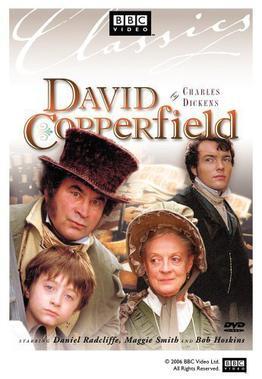
This is, as legend has it, where Daniel Radcliffe was discovered. It is, indeed, a tiny little Harry Potter. I watched this years ago, curious about this baby Harry Potter and all the other A-list actors in it. It is solid. It is what probably made me feel like I’d read David Copperfield before as I was listening to it. It’s long enough to allow it to be true to the original. I couldn’t say that for sure, but it seems like the most solid one to watch if you want accuracy with watchability.

“This kid, if he wanted a shot at the finer, things, should have got himself delivered to some rich or smart or Christian, nonusing type of mother. Anybody will tell you the born of this world are marked from the get-out, win or lose” (p2).
“So what do I know about ocean, still yet to stand on its sandy beard and look it in the eye?” (p3).
“It turns out, the worst shit people can things of to do to each other up home is also thought of and done in Knoxville” (p22).
“If you are one of the few that still hasn’t been, let me tell you what a city is. A hot mess not easily escaped” (p22).
“…around middle school where life gets mean and a girl starts to see how mad is better than sorry, and telling better than asking. Even where God is concerned” (p40).
“But the wicked have a different head for numbers than most. Any bad they do will end up on the side of never-mind. What’s done to them weighs double” (p41).
“What a pretty sight, you’d say [of a tobacco bottom], if you’re an ignorant son of a bitch. Instead of: There lies a field that eats men and children alive” (p96).
“But time passed and eventually my mind had only one thought in it as regards childhood. For any kid that gets that as an option: take that sweet thing and run with it. Hide. Love it so hard. Because it’s going to fucking leave you and not come back” (p97).
“If you’re standing in a small pile of shit, fighting for your one place to stand, God almighty how you fight” (p103).
“I had roads to travel before I would know it’s not that simple, the dope versus the person you love” (p109).
“It hit me pretty hard, how there’s no kind of sad in this world that will stop it turning” (p112).
“On the drive in, we’d passed a park with people skating on solid ice, even though they’re having a warm snap. Sun blazing, people running around in track jackets and shorts. In any normal place, just try walking out on an iced-over pond on such a day: sorry friend, you’re dead. But in the city, the rules do not apply. It’s like everybody is bored of all the normal things, out looking for weirder options” (p121).
“I mean, it sucks to barge in on people that don’t really want you. But you’ve not seen the like of these sad individuals with nobody to barge in on, and nothing to eat. Because where are you even going to steal an apple off a tree? In the city if you’re out of money you are screwed, no two ways about it. Giving rise to mayhem, such as carjackings” (p123).
“Because DSS pay is basically the fuck-you peanut butter type sandwich of paycheck. That’s what the big world thinks it’s worth, to save the white-trash orphans. / And if these kids grow up to throw punches at washing machines or each other or even let’s say smash a drugstore drive-through window. Crawl in and take what’s there. Tell me how you’re going to be surprised. There’s your peanut butter sandwich back” (p166).
“What is the deal with women, somebody tell me. A day can be going to hell in a hornet’s nest, you’re fixing to lose your breakfast, but she’s still going to get her homework done” (p211).
“Ms. Annie said all God’s children have to take a shit, but you’d never know it from the way they treat the ones that clean it up” (p277).
“Now versus the old days. I said maybe the difference was we could see now what all we were missing. With everybody else in the world being richer than us, doing all kinds of nonsense and getting away with it. It pisses you off. It makes you restless” (p287).
“The comedy channel is so funny it can make you want to go unlock the gun cabinet and kill yourself. Do thy really think that along with being brainless and having sex with animals, we don’t even have cable?” (p317).
“Good people, bad people, what does that even mean? Get down to the rock and the hard place, and we’re all just soft flesh and the weapon at hand” (p329).
“I mean, sex is great and everything, as anybody will tell you. But there’s much to be said also for lying around with a person on beanbags, firing popcorn penalties at each other for offside fart violations” (p373).
“Likewise the Charles Dickens [author], seriously old guy, dead and a foreigner, but Christ Jesus did he get the picture on kids and orphans getting screwed over and nobody giving a rat’s ass. You’d think he was from around here” (p374).
“This tether that’s meant to attach you to something all your life, be it home or parents or safety, has been flailing around unfastened all this time, tearing at your brain’s roots, whipping around so hard it might take out an eye. [Getting high, a]ll at once, that tether goes still on the floor, and you’re at rest. / You start out trying to get back there, and pretty soon you’re just trying to get out of bed. / It becomes your job, staving off dopesickness for another day. Then it becomes your God” (p408).
“Certain pitiful souls around here see whiteness as their last asset that hasn’t been totaled or repossessed” (p424).
“As if it’s only by hurting yourself that you can be true” (p427).
“You can’t choose your family, but a partner is your shot at a decent do-over” (p432).
“The wonder is that you could start life with nothing, end with nothing, and lose so much in between” (p468).
“They said four guys with shit for brains are stupider than one, and laughed like that was the best joke ever, which it wasn’t. It’s a well-known fact” (p483).
“I thought about what Rose said, wanting to see the rest of us hurt, because she was hurting. You have to wonder how much of the whole world’s turning is fueled by that very fire” (p496).
“The body is the original asshole, it can put you on detention away from all pleasures, but still makes you write out the list of its needs, one hundred times” (p505).
“…a good story doesn’t just copy life, it pushes back on it” (p520).
“How do you get tax money out of moonshine? Answer: You and what army. It goes a ways to explaining people’s feelings about taxes and guns” (p523).
.
Note: for the record, I have already written the first draft of my novel that takes place in rural Appalachia on a farm. The moral is the same, most else is totally different.
May 30, 2025
Bookish: In Defense of Romance
How many times did I say it over the years? I read everything except horror and romance. I guess at some point I amended it to erotica and horror, but still—I do read horror, sometimes, on very special occasions, for very special reasons. In fact, I’m about to read Children of Solitude because I heard Michael G. Williams read, and that bit he read was so funny and clever. Couldn’t wait for it to be published. (We’ll just leave what I said about erotica as it is.)

As for romance, I’ve told this story before. I was on residency, which means I was focused on literature 24-7 and was without a TV. It is obvious, then, that to unwind before bed, I would read. But who wants to spend all day writing and revising and researching and outlining to snuggle up in some strange bed with something heavy and serious? Well, not me. I headed to the local bookstore (which obviously I was headed to anyway) and directed my searching abilities at the staff picks and popular fiction tables, hoping for something absorbing and not the least bit heavy-handed. It might have been Emily Henry the first time (Book Lovers), or it might have been Madeline Miller (The Song of Achilles, though I’m pretty sure that was the second time), but man did I love sinking into some kinda’ silly book in the evening and into the night. And was it silly? Maybe not even. It was easy to read. It was easy to not pay attention to ghosts and flying bugs. It was easy to calm my buzzing brain and forget my persistent plot problem or my uncooperative narrator so that I could eventually doze off.
I agree with diyMFA’s four things that qualify a romance: the romantic relationship is the focus; there is a conflict; and a strong female lead (though I would argue there are romances with strong male or other-gendered leads, as long as they are the central romantic character, catering to a different audience than the majority, and also that dual-POVs is very popular right now); and a happy ending (which is most often just happy, but it can be sorta mixed, again, for certain types of readers).

Turns out, not all romance is Harlequin romance. It’s a giant industry not (just) because it’s produced quickly and cheaply to consequently produce cheap thrills, but because people want to read it. And not everyone wants the same book. Never! There are genres within every genre, and romance is no exception. And thank goodness covers have changed over the years, too (from rippling biceps and cinched corsets to bright, blocky, cartoony cuteness) and that even basic genres have mixed and mixed and mixed. If you want a romance/historical, then yup. If you want a romance/YA/sports, then of course. And let’s not forget romantasy.
Which means that not only is there a romance that fits what I want to read, there is also romance that is well-written.
Perhaps it’s because so much is getting produced. So much! There is a part of me that is not a fan of this (and I have my many reasons). But it is possible that with so much published, there is more opportunity for readers to discover the book they have been waiting for. Readers get to say, “Hey! That book that you pushed wasn’t any good. Now, this random one over here… it’s actually beautifully-written.” If they wade through enough. Whatever. I said I wasn’t going to list all the reasons that the surfeit of publications is a bad thing (one being that you have to wade through so much more terrible-ness to get to that gem).

My point of all of this is to defend the romance genre. Believe me, the genre does not need me to defend it. It does just fine on its own. And if some literary types are still going to turn their noses up at it, what does it matter? It doesn’t, so much. Which just makes this my two cents.
Romance is a defensible genre. Not only is it beloved and well-read and well-funded (read: profitable), but it is also sometimes quite good. And it is so wide, now, that it includes not only sub-genres, topics, and vibes for everyone, but even the lit-snobs can find some that is impressively written. (Oh, I forgot. We just call those books literary and move them to the backlist section and pretend they’re not romance.)
The truth: all this is in celebration of the new romance section at the bookstore where I work. It took some doing to convince one of the owners that it belonged there with all the academic and gender studies and poetry that our community demands. And darned if it isn’t (also) selling well.
Plus, it pretties up the place.
__________
In honor of the event, I am going to create a romance section on the Recommended Reading page of the blog. Find that page HERE.
My favorite romance titles:





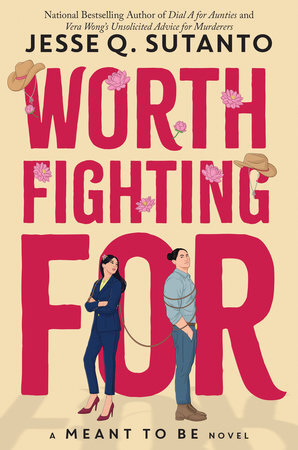
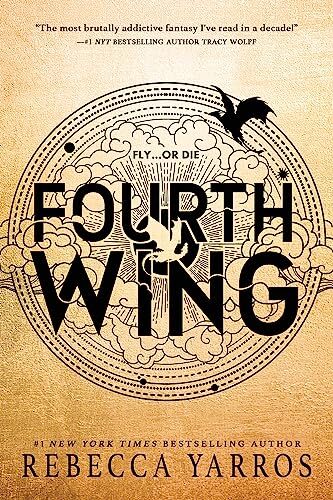





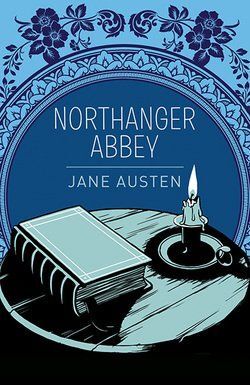
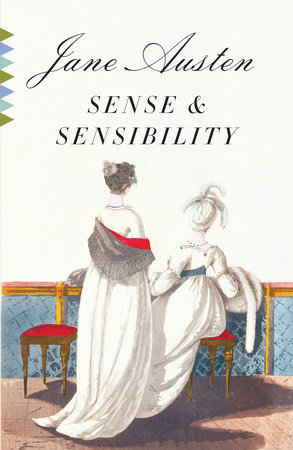

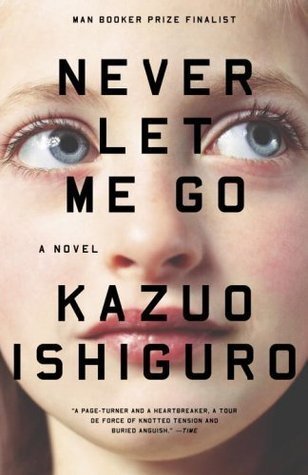
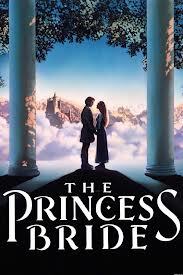

 Love in the Time of Cholera, Gabriel Garcia Marquez
The Song of Achilles
, Madeline Miller
Eligible
, Curtis Sittenfeld
Bridget Jones’ Diary
, Helen Fielding (I’m told this one is outdated, these days)
Never Let Me Go
, Kazuo Ishiguro
Great Big Beautiful Life
, Emily Henry
Worth Fighting For
(Meant to Be #5), Jesse Q. Sutanto
Fourth Wing
(The Empyrean #1), Rebecca Yarros
The Ornithologist’s Field Guide to Love
(Love’s Academic #1), India Holton
The Geographer’s Map to Romance
(Love’s Academic #2), India HoltonEmma, Jane Austen
Jane Eyre
, Charlotte Bronte
Wuthering Heights
, Emily Bronte
Northanger Abbey
, Jane Austen
Sense and Sensibility
, Jane Austen
Pride and Prejudice
, Jane Austen
The Princess Bride
, William Goldman
Betting on You
, Lynn Painter (YA)Twelfth Knight, Alexene Farol Follmuth (YA)
Love in the Time of Cholera, Gabriel Garcia Marquez
The Song of Achilles
, Madeline Miller
Eligible
, Curtis Sittenfeld
Bridget Jones’ Diary
, Helen Fielding (I’m told this one is outdated, these days)
Never Let Me Go
, Kazuo Ishiguro
Great Big Beautiful Life
, Emily Henry
Worth Fighting For
(Meant to Be #5), Jesse Q. Sutanto
Fourth Wing
(The Empyrean #1), Rebecca Yarros
The Ornithologist’s Field Guide to Love
(Love’s Academic #1), India Holton
The Geographer’s Map to Romance
(Love’s Academic #2), India HoltonEmma, Jane Austen
Jane Eyre
, Charlotte Bronte
Wuthering Heights
, Emily Bronte
Northanger Abbey
, Jane Austen
Sense and Sensibility
, Jane Austen
Pride and Prejudice
, Jane Austen
The Princess Bride
, William Goldman
Betting on You
, Lynn Painter (YA)Twelfth Knight, Alexene Farol Follmuth (YA)Some romance titles I am just itching to read next:
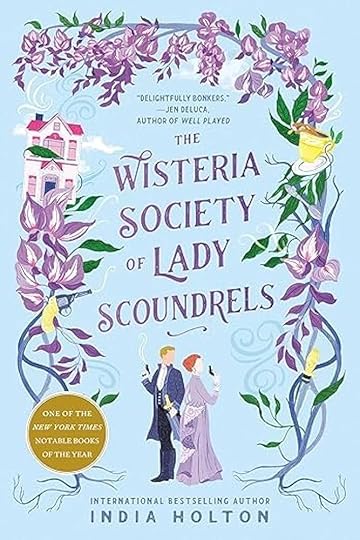


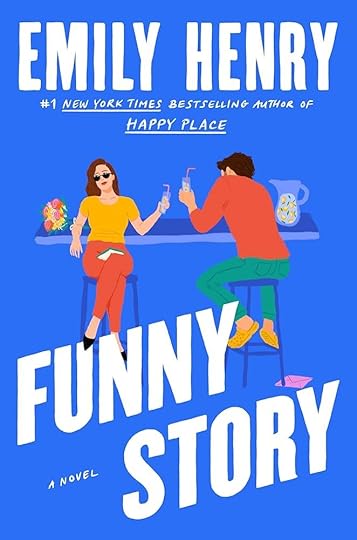

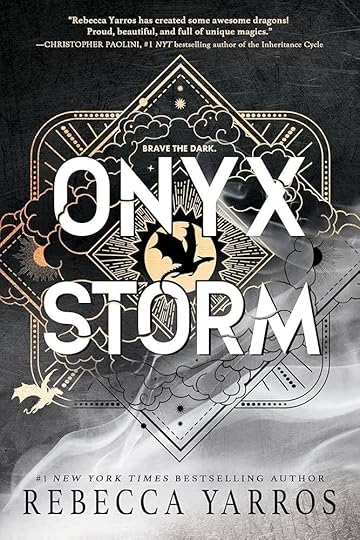

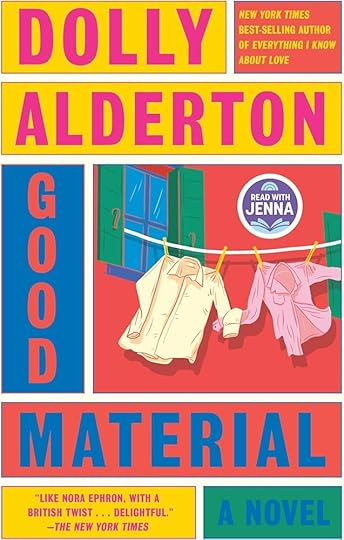




 The Wisteria Society of Lady Scoundrels, India HoltonBy the Book (Meant to Be #2), Jasmine GuilloryTangled Up in You (Meant to Be #4), Christina LaurenFunny Story, Emily HenryIron Flame and Onyx Storm, Rebecca YarrosHot Desk, Laura DickermanGood Material, Dolly AldertonThe Impossible Us, Sarah LotzA Court of Thorns and Roses, Sarah J. MaasRed White & Royal Blue, Casey McQuistonThe Love Hypothesis, Ali HazlewoodThe Seven Year Slip, Ashley Poston
The Wisteria Society of Lady Scoundrels, India HoltonBy the Book (Meant to Be #2), Jasmine GuilloryTangled Up in You (Meant to Be #4), Christina LaurenFunny Story, Emily HenryIron Flame and Onyx Storm, Rebecca YarrosHot Desk, Laura DickermanGood Material, Dolly AldertonThe Impossible Us, Sarah LotzA Court of Thorns and Roses, Sarah J. MaasRed White & Royal Blue, Casey McQuistonThe Love Hypothesis, Ali HazlewoodThe Seven Year Slip, Ashley PostonA list of romance-worth-reading (of which I have not read all and which does not include books from the past three years):
Jane Eyre , Charlotte Bronte Anna Karenina , Leo Tolstoy Love in the Time of Cholera , Gabriel Garcia MarquezNorth and South, Elizabeth Gaskell Pride and Prejudice , Jane AustenEmma, Jane Austen Sense and Sensibility , Jane AustenMaurice, E. M. Forster The Princess Bride , William GoldmanTess of the D’Ubervilles, Thomas Hardy Wuthering Heights , Emily BronteRomeo and Juliet, William ShakespeareRebecca, Daphne de MaurierSonnets, ShakespeareLove Poems, Robert and Elizabeth Barrett BrowningGone with the Wind, Margaret MitchellThe Thorn Birds, Colleen McCulloughThe Notebook, Nicholas SparksA Walk to Remember, Nicholas SparksIndigo, Beverly JenkinsRoss Poldark, Winston Graham Outlander , Diana Gabaldon A Long Petal of the Sea , Isabel AllendeTipping the Velvet, Sarah WatersBirdsong, Sebastian FaulksCall Me Your Name, Andre AcimanThe Time Traveler’s Wife, Audrey NiffeneggerThe Kiss Quotient, Helen HoangWhen Katie Met Cassidy, Camille PerriMe Before You, Jojo MoyesSomething Borrowed, Emily GiffinRed, White and Royal Blue, Casey McQuistonThe Hating Game, Sally Thorne Normal People , Sally Rooney Beach Read , Emily Henry It Ends With Us , Colleen HooverThe Proposal, Jasmine GuilloryOn Earth We’re Briefly Gorgeous, Ocean VuongKiss an Angel, Susan Elizabeth PhillipsVision in White, Nora Roberts Twilight , Stephanie Meyer *Forever…, Judy BlumeTo All the Boys I’ve Loved Before, Jenny HanThe Selections, Keira CassFangirl, Rainbow RowellEleanor & Park, Rainbow RowellAnna and the French Kiss, Stephanie PerkinsAristotle and Dante Discover the Secrets of the Universe, Banjamin Alere SaenzSimon Vs. the Homo Sapiens Agenda, Becky Albertalli The Song of Achilles , Madeleine MillerMore Happy Than Not, Adam Silvera The Fault in Our Stars , John GreenThe Grand Sophie, Georgette HeyerSecrets of a Summer Night, Lisa KleypasFlowers from the Storm, Laura KinsaleLord of Scoundrels, Loretta ChaseShanna, Kathleen E. WoodiwissMorning Glory, Lavyrle SpencerThe Viscount Who Loved Me, Julia QuinnDelaney’s Desert Sheikh, Brenda JacksonDark Lover, J. R. WardBet Me, Jennifer CruiseA Hunger Like No Other, Kresley ColeSlave to Sensation, Nalini SinghDevil in Winter, Lisa KleypasNine Rules to Break When Romancing a Rake, Sarah MacleanThe Dutchess Way, Courtney MilanThe Magpie Lord, KJ CharlesTangled, Emma ChaseGlitterland, Alexis HallAnte Up, Christina C. JonesActing on Impulse, Mia SosaHate to Want You, Alisha RaiLong Shot, Kennedy RyanThe Kiss Quotient, Helen HoangThe Lady’s Guide to Celestial Mechanics, Olivia WaiteSeven Days in June, Tia WilliamsLove at First, Kate ClaybornA Spot of Trouble, Teri WilsonThe Wedding Date, Jasmine GuilloryMeet Me in Paradise, Lilly HubscherVirgin River, Robyn CarrMaggie Finds her Muse, Dee ErnstThe Lost and Found Necklace, Louisa LeamanThe Right Swipe, Alisha RaiHeartbreaker, Julie GarwoodTwice Shy, Sarah HogleOnce Ghosted, Twice Shy, Alyssa ColeMrs. Miracle, Debbie MacomberWolf Rain, Nalini SinghThe Passing Playbook, Isaac FitzsimmonsA Bollywood Affair, Sonali DevCrazy Rich Asians, Kevin Kwan Book Lovers , Emily HenryIncense and Sensibility, Sonali DevThe Roughest Draft, Emily WibberlyYinka, Where Is Your Husband?, Lizzie Damilola BlackburnArsenic and Adobo, Mia P. ManansalaA Special Place for Women, Laura HankinA Thorn in the Saddle, Rebekah WeatherspoonJust Last Night, Mhairi McFarlaneAn Extraordinary Union, Alyssa ColeThe Editor, Steven RowleyThe Siren, Katherine St. JohnA Lot Like Adios, Alexis DariaVerity, Colleen HooverPortrait of a Scotsman, Evie DunmoreThe Fastest Way to Fail, Denise WilliamsSo We Meet Again, Suzanne ParkBy the Book, Jasmine GuilloryPayback’s a Witch, Lana HarperA Week to Be Wicked, Tessa DareMay 27, 2025
Writer in the Wild: Shelf Discovery
In the capacity of bookseller, I have appeared on Kate Bowler’s Instagram to share a graduation recommendation and highlight our Durham bookshop. I have mixed feelings about this, but feel free to watch the short video and give it a like.
View this post on InstagramA post shared by Kate Bowler

Author + Prof (@katecbowler)
May 20, 2025
Book Review: Godkiller

I am so upset about this stupid book.
The first in Hannah Kaner’s Fallen Gods series, Godkiller is maddening to read. I was reading it for a book club (and none of us are surprised), so when I struggled from the near-beginning with the writing, I kept going to see if I really had to DNF it. I was immediately drawn into the world and was interested in the magic system and the unique interaction of gods and humans. And in my defense, the first chapter was written so much better than what was to follow. I can’t recall exactly where the writing took a turn; I was glued to the page and then I was super frustrated.
Because the writing and editing in Godkiller is so, so bad. It just plain is. There are pronouns and even nouns all over the place that are dangling, antecedents unknown. Action sequences (even small actions) are confusing and inconsistent. In general, there are sentences and paragraphs on almost every page that require re-reading just to understand Kaner’s head-hopping, circuitous sentence structure, and misused words. Also, she is so far from nailing the four POVs. (That’s me being nice.) They have the same voice, and they are inconsistent, at best.
Except, I found that I was just invested enough to pull a little trick: I turned off my inner critic, my editor-self, let myself not understand every sentence, and just read. Every once in a while, a sentence or paragraph would so incense me that I would write something scathing in the margin before I could go on, but overall, my strategy worked. I was able to float through the story absorbing enough to get the story, but letting some of what wasn’t working just go. I’d catch up in the next scene. And besides the romance being a flop (the set-up was nonexistent and the timing way off), I loved this story and its characters. I loved the world, the magic, the twists and turns.
Infuriating, isn’t it?
Where was Kaner’s editor? Did she have one? Did she reject all the edits? What on earth happened here? I am currently going through revisions of a fantasy-mystery and my beta readers would have left Kaner’s MS (like in a hypothetical where it was mine) bleeding red with line corrections. I know she’s British or maybe Scottish, so some weird-to-me things like “span” instead of “spun,” fine. But, well, let me pull a few random examples:
“The chair shook with the thud of the bolt as it hit the seat, a hand’s span from Inara’s face” (p24). What bolt? The chair hit “the” seat? What seat? And why did Kissen throw it at Inara? Or near her? (I’m still confused about this one.)“The godkiller flipped the knife…” (p24). What knife? I looked. No reference to a knife earlier. And as an aside, I had to re-read the paragraph this sentence began, four times to understand what was happening. I tallied.“The godkiller scoffed. ‘I don’t kill people,’ she said…” (p25). Didn’t she just kill someone? Had to go back and figure out that she didn’t.“Once and over, twice and over, the dough rippling as he rolled it. [Dough rippling? And it should be rippled.] That was the pride of his bakery, commissioned especially from Irisian smokewood, from the land of his mothers, the same beautiful dark, warm brown as his skin, and the pale ground wheat flour stood out on both like stars or snow. [What did I just read? What noun is this sentence even about?] This bench was a better surface than the crowded kitchens of the Reach in Sakre, the palace of Middren’s capital, where he had squired. Better still than the flat stones and mud of battleground” (p27). I had to re-read several times to figure out what she was saying and absorb the enormous amount of info she was trying to give us in just a few sentences. Like Elo’s entire history and skin color.“His mother still living sent him generous parcels when she could. The meal was originally north Irisian too, but a popular enough working supper across the Trade Sea” (p28). Can we just agree “still living” is unnecessary? And how do the clauses of the second sentence play together? They don’t.“The step shifted.” Like he heard a sound—a step—and it shifted. What?“Although his visits were rare, Arren always showed up without warning, without letter, and most often for no reason at all. [Not great, but fine.] But there was something different about him this evening, as if Elo’s thoughts of his friend had summoned him into being. [Wait, what? How does that follow?] A new intensity also burned in his eyes. [Delete “also,” because now I’m annoyed.] It was most of a day’s ride from the Reach to Elo’s bakery in Estfjor village, and he looked half-wild [who did?], as if he himself had run the whole way” (p29). That last phrase is the kicker. Enough “as if”s! And how does that follow? Delete “himself,” 100%. Maybe he did run. It’s a weak simile, at best.I tried to stop jotting annoyed notes on page 30. For funsies, I’ll give you one or two more:
The baker, Elo, [we def know who the baker is at this point] drew his own sword [or just his sword] as the beast’s mouth reformed and finished it [wait, is Elo or the mouth finishing?] with one strike through its middle. [Through the middle of a mouth?] Out spilled white smoke, heavy and hitting the ground” (p101). Art is dead.I silenced my pen for most of the book after that, until almost the end when there was a “them” that I still haven’t figured out. Please note that these examples are not special. They are persistent. And all the little things contribute to a general confusion and therefore lack of development.
The series is a trilogy that wrapped up this year: Godkiller, Sunbringer, and Faithbreaker. Some people say Godkiller ends on a cliffhanger, but not really. It wraps up this part of the story, and our questions are bigger now, about the longer haul. We get what has happened to all four POV characters
What does it have going for it? Disability representation. Different body-types and ages. A queer-normative society. And a great story full of cool characters (and strong girls and women) and cool ideas and cool places (though the places were not as creative as the rest of it. They were pretty standard fantasy but still really cool). Some people also said it sagged through most of the middle, but I found it to meet that whole fantasy-journey pacing, like books from The Fellowship of the Ring to modern D&D-inspired stuff. Everything came together in the end (except the romance). Lots of little pieces slotted into place, which was so satisfying. Characters grew and changed. Surprises happened. (All of it would have been so much better, though, if they writing had really landed–the reader would have been so much more invested.)
If only I hadn’t been gritting my teeth most of the time. And this: Kaner has a “first class degree” in English from Cambridge! I still don’t understand what happened. Also this: lots of people love this book (and the whole trilogy). Plenty of readers even praise the writing. Though the.bookish.designer on GoodReads is with me, “There is no way to dress this up, the book is poorly written. I’m not going to pretend I could write better, I couldn’t, but I can identify poor writing. The sentence structure is difficult to read, at many points I was finding myself re-reading paragraphs multiple times to make them make sense.”
I’m going to be giving the book three stars. (Gasp!) The story is saving it from two. The problem is, I now want to know what happens with this story, with these people! For the first time, I may continue a series that I basically panned and gave three stars. I mean, they are shortish books, for fantasy. WIth cool covers. We’ll see. There’s so much on my TBR, maybe I’ll forget about this whole experience in time. I told you; I am so upset about this stupid book.
May 18, 2025
ARC Review: Worth Fighting For

Worth Fighting For by Jesse Q. Sutanto comes to a bookshop near you in a couple, short days. I got an ARC as a bookseller and was curious to read Sutanto for the first time. I am also actively looking for romance authors who I can stand behind. I did not realize exactly what this title was until I started reading while on residency. What is it? The fifth in a series (each by a different author) for Disney, remaking major Princess Films into (adult) romance novels. That’s a thing? Yeah. And it’s a pretty great idea, actually, from a marketing standpoint. How many middle-aged, female, die-hard Disney fans do you know? I know at least a few. Then add to that the die-hard fans of each author. Pretty smart. Disney.
Let’s note it again: this is not for children. And move on.
The Meant to Be series so far is:
If the Shoes Fits, Julie Murphy (based on Cinderella)By the Book, Jasmine Guilloroy (based on Beauty and the Beast)Kiss the Girl, Zoraida Cordova (based on The Little Mermaid)Tangled Up in You, Christian Lauren (which I just found out is two bestie authors and I think that is really cool; based on Tangled)And really soon… Worth Fighting For, Jesse Q, Sutanto (based on Mulan)The authors here are not being subtle about this. They’re not going to snag you and fail to deliver on the Easter eggs. In fact, my understanding is that the novels are almost beat-for-beat the original, animated movies. But at least with Worth Fighting For, they are also their own stories. Both and.
Hua Mulan has had to work really, really hard (and put up with endless finance bros) to succeed in her father’s hedge fund company. When he winds up in the hospital, Mulan must take the Wutai Gold account by the horns all on her own in order to make him happy. The thing is, Wutai Gold Whiskey won’t sell to some girl, so Mulan becomes her father, the Chinese rancher that has been emailing with the CEO, Shang. Shang turns out to be a devastatingly handsome man who invites Mulan and her cousin Mushu to the family ranch to prove she can rope and wrangle with the manliest of men. But it’s all a lie. And Mulan’s feelings about Shang are really messing with the deal.
If it sounds obvious, well, it is. Plus, it’s likely we’ve watched Mulan, so doubly obvious. Let me start with this: I was glad we didn’t go straight to a gender farce this time. Mulan pretends to be her father, but still a woman. Just a woman that can ride with the men even if she’s a city girl.
I also want to jump in with this: Sutanto’s endnotes about why she wanted to write this story are very heartfelt and compelling. Because yes, this is genre romance and yes, it is a fun play on a Disney classic, but it is also a story about immigrant children, Chinese and Chinese-American culture, and feminism. And I was slowly convinced while reading, nodding along to Sutanto’s asides at the end.
Because at first, it was a little cheesy. I actually thought, Oh no. There is so much Mulan there, so many references. And the set-up is glaringly obvious. So, double the cheese. But I plowed ahead (maybe because it was the lightest read that I took on my residency and we all know I like to read something light and addictive on residency). And darned if this story, these characters, and Sutanto didn’t win me over. By halfway, I didn’t want to put the book down. There’s such heart in it. And I was laughing. And learning. And I couldn’t help but be drawn into Mulan, Shang, and—heaven help me—Mushu (who is basically Awkwafina in Crazy Rich Asians. Okay, with a few changes). I even thought for a long time that Shang was too obvious, too perfect. But Sutanto was careful to include insight into Shang from side-characters that lets us know that Mulan’s perspective here is unreliable. She’s head over heels. He’s not actually perfect (though his body is).
And I was happy to just stay in Mulan’s perspective. I don’t want the love interest’s perspective in every book, ya’ll.
Sutanto is Indonesian and Singaporean (at least where she lived growing up and now, though her family in Chinese) and has a Masters from Oxford. She is most-well known (so far) for her Aunties (Dial A for Aunties, Four Aunties and a Wedding, and The Good, the Bad and the Aunties) series and her Vera Wong series. Vera Wong’s Unsolicited Advice for Murderers was followed up by Vera Wong’s Guide to Snooping (on a Dead Man) just last month. Her genres are thriller, mystery, and romance, across ages. I am hoping to get to the Vera Wong series soon.
Is this amazing writing? It’s fine writing. Are we cringing at trying to fit a story into a Disney Princess story? Depends on who we are. If you just want to have a good time and your pinky tends to stay down when you drink tea (or sip an iced latte through a giant straw, instead), then I would recommend this book for you. And if you are a Disney fan, especially a Mulan fan, and/or a Sutanto fan, who reads romance/rom-com, then absolutely. Personally, I might even go back and read a few more of the series. Or all of them. This one was good, clean fun. And if I’m looking for something to read on a vaca in Orlando sometime soon, then all the better.
(Note: there is not explicit sex in this one, and I’m betting in any of them. It’s a get there and fade to black situation. In case you were wondering.)
(Another note: I have no quotes for you since my copy is an ARC and that is not allowed.)
Holiday Book Review: Mother-Daughter Murder Night

I haven’t been able to find a lot of recommendations for Mother’s Day reads. This year I had Mother-Daughter Murder Night and The School for Good Mothers lined up and only got to one. That leaves one for next year, though, already sitting on my shelf. As for Mother-Daughter Murder Night by Nina Simon, well, I should have known by the 3.56 Goodreads review. Then again, I didn’t hate it. (It is a Reese’s recommendation.) The writing was adequate most of the time (which is more than I can say for the poor book I’m reading right now). But the story and characters were also just okay. So, I read it. I didn’t hate it. But there was very little keeping me going, which is why it took longer than it should have. (Maybe I should thank it for leaving a title for me for next year.) In a concept built on relationships, I didn’t really care.
(Also, can we with the cover? It looks like someone whipped it up on a computer in like five minutes.)
Beth is a single mom of a teenager who has built a happy life for the two of them in a coastal California town in a house on the slough. Jack, her daughter, loves the water and wants to upgrade to a boat, which is why she works at the local paddle shack. But when Beth’s mom, Lana (a high-power real estate broker) finds out she has cancer and leaves LA to live with Beth in her artsy, out of the way bungalow, she is not amused. But when Jack finds a body in the water, Lana finds something to do with her time, and it’s sleuthing.
I don’t have much to say about this book, actually. I’ve read some great stuff lately, but Mother-Daughter Murder Night did not impress. I wanted to like the characters—the ideas of them were interesting. And a Gilmore Girls with murder (which is what the blurb calls it) sounds quirky and lighthearted and fun. But almost every single character fell flat for me, not much quirk at all. It was a little bleak out on the slough. And boring, despite the intrigue. I was reading through the steps of a murder mystery, unconvinced by most scenes and most characters. Yawn.
That sounds horrible. If you love murder mystery books and are looking for something to read with your mother or daughter, then it makes sense for you to read this one, I guess. There will be things to talk about. (Note: if you don’t know what a slough is, look it up before you begin.) It was relationship-heavy, but I found even that aspect unconvincing a lot of the time, even though I wanted to be convinced. What did I like? The slough (though it could have been described better). Beth and Jack and their little house. The setup with Lana and the murder. Overall? Well, you know. It didn’t deliver on the cozy or the characters and the mystery was only mildly interesting.
Next year, The School for Good Mothers.
(There’s a pretty hilarious review by Micaela on Goodreads, by the way, that sorta sums this up. Especially if you are a usual Reese reader.)
May 11, 2025
What to Read in May 2025
Let’s just jump straight into my summer reads recommendations. Which I will add to in the coming months as I make my way through ARCs and see what shows up on the shelves.

I’ve already read a few of this summer’s releases and there are four that I am going to recommend.


My most emphatic recommendation is for The Geographer’s Map to Romance by Indian Holton, which is number two in the Love’s Academic series, but officially you don’t have to read them in order or read more than the one, at all. I loved the over-the-top The Ornithologist’s Field Guide to Love too, but Geographer is new and—I thought—even better. Now, if you are not in to writing that is purposefully exaggerated and brimming with Victorian British, steamy romance, fantastical earth science, literary references, steam punk (mildly), then maybe take a pass. But… come on!
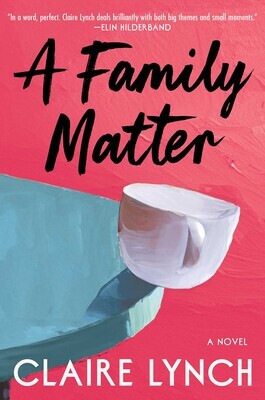


I am also recommending A Family Matter by Claire Lynch. It will be published in June in England and America and is a very tightly written story about a man who is gravely ill and a married woman who falls in love with a woman in the 80s and how their stories weave together across the decades. I thought it was beautifully written, even though it takes time to warm up.
Julie Chan Is Dead by Liann Zhang is an unhinged read that I believe will hit just right with Gen Z (or Zoomers. Whatever). It starts out as a mistaken-identity social influencer book and ends up pretty much in cult horror. It ramps up over and over until you feel out of control. I enjoyed it. I think younger people will appreciate it even more. It makes a great pairing with Apple Cider Vinegar, the new Netflix streaming series.


I have read this summer’s hottest title, and that would be Great Big Beautiful Life by Emily Henry. Already, the reviews are polarized. Henry incorporated more women’s fiction, one of the two story-lines not being a steamy romance. Some people don’t like that, at all. You couldn’t have sold me on that ahead of time, but I actually thought this was Henry’s best so far. And it’s not because of the two story lines; it’s because I think her writing is improving. If you want paperback, pick up Funny Story from last summer.



I happened to set up the Summer Reading Ideas display at the bookshop the other day, too. It’s a small space, so I didn’t want to overwhelm anyone with the classic reads, but I did throw Pride and Prejudice by Jane Austen up there. I hear people say “I always meant to read Jane Austen” all the time, and this is perhaps her most classic (though I actually like Emma best). This, too, makes a great pairing with the 1995 or 2005 TV and movie versions, Austenland (2013), and of course Bridget Jones’ Diary (2001). My favorite book adaptation so far is Eligible (Curtis Sittenfeld, and, obviously, Bridget Jones’ Diary, Helen Fielding, which someone has pointed out to me recently is quite out of date).
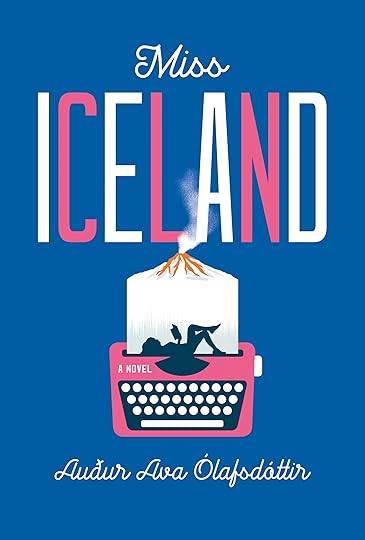

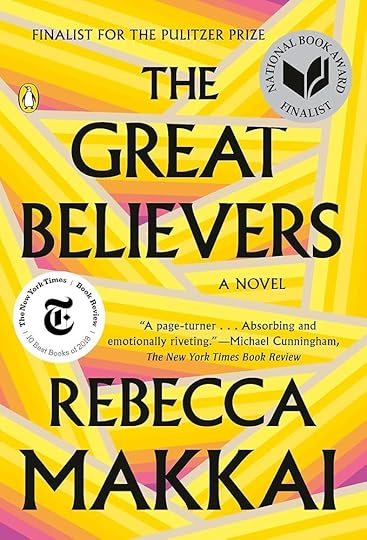

I would also throw in there Miss Iceland by Audur Ava Olafsdottir, Martyr!, Kaveh Akbar, The Great Believers by Rebecca Makkai, and Universal Love by Alexander Weinstein, three of my fave reads from summer 2024. (Okay, one wasn’t summertime. Whatever.)

Things I might point you to for summer reading even though I have not read them.
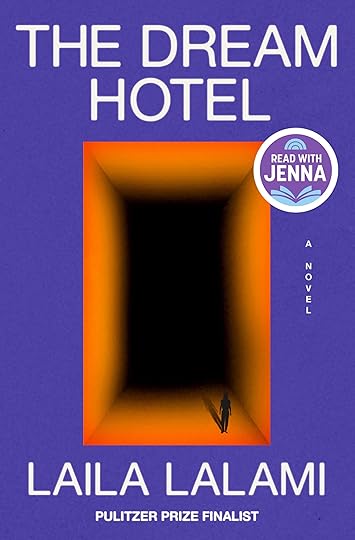


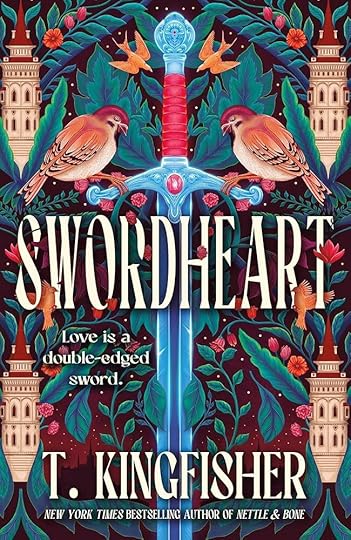




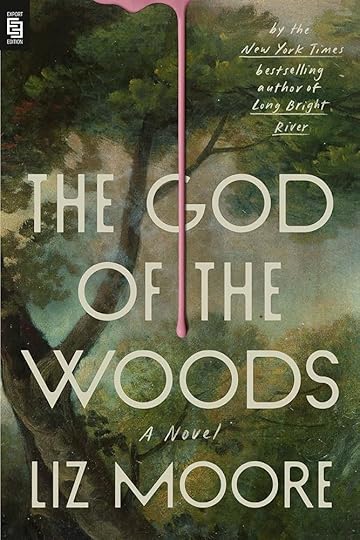






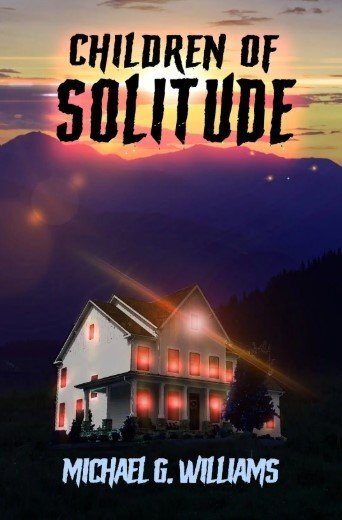



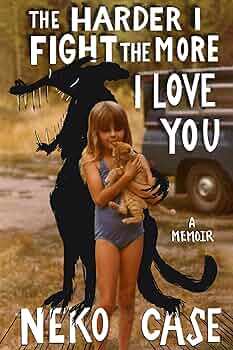
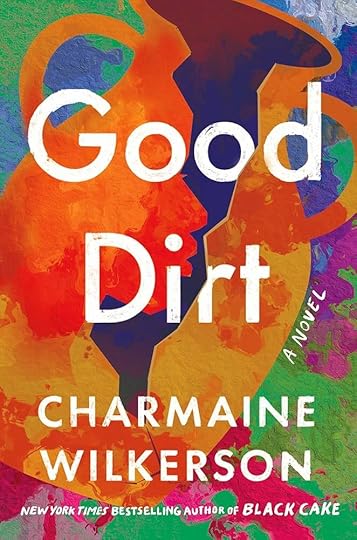
 The Dream Hotel, Laila LalamiFrog and Toad Are Doing Their Best, Jennie EgerdieThe Left Hand of Darkness, Ursula K. Le GuinSwordheart, T. KingfisherParable of the Sower, Octavia ButlerFourth Wing, Rebecca Yarros (or Onyx Storm if you have read that far already)Want, Gillian AndersonThe God of the Woods, Liz MooreHow to Solve Your Own Murder, Kristen PerrinGood Material, Dolly AldertonThe Wedding People, Alison EspachMonk and Robot, Becky ChambersTilt, Emma PatteeBandit Queens, Parini SchroffChildren of Solitude, Michael G. WilliamsThe Cemetery of Untold Stories, Julia AlvarezLady Tan’s Circle of Women, Lisa SeeOlympus, Texas, Stacey SwanGood Dirt, Charmaine WilkersonWater Moon, Samantha Sotto YambaoThe Harder I Fight, the More I Love You, Neko Chase
The Dream Hotel, Laila LalamiFrog and Toad Are Doing Their Best, Jennie EgerdieThe Left Hand of Darkness, Ursula K. Le GuinSwordheart, T. KingfisherParable of the Sower, Octavia ButlerFourth Wing, Rebecca Yarros (or Onyx Storm if you have read that far already)Want, Gillian AndersonThe God of the Woods, Liz MooreHow to Solve Your Own Murder, Kristen PerrinGood Material, Dolly AldertonThe Wedding People, Alison EspachMonk and Robot, Becky ChambersTilt, Emma PatteeBandit Queens, Parini SchroffChildren of Solitude, Michael G. WilliamsThe Cemetery of Untold Stories, Julia AlvarezLady Tan’s Circle of Women, Lisa SeeOlympus, Texas, Stacey SwanGood Dirt, Charmaine WilkersonWater Moon, Samantha Sotto YambaoThe Harder I Fight, the More I Love You, Neko ChaseOr if you’ve fallen behind on your must-reads (like, if you missed it, maybe you should read it this summer):


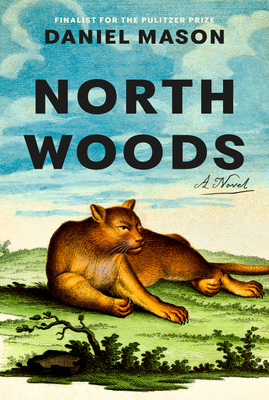
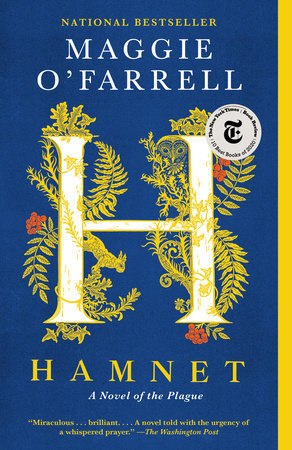

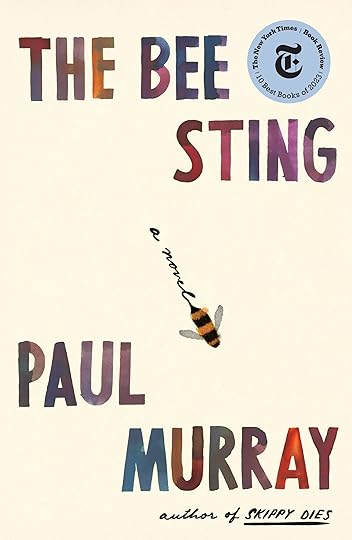








 James
, Percival Everett (I have read it. Liked it.)All Fours, Miranda July
North Woods
, Daniel Mason (I have read. Love it.)
Hamnet
, Maggie O’Farrell (I have read. Love it.)Intermezzo, Sally RooneyThe Bee Sting, Paul MurrayCreation Lake, Rachel KushnerNight Watch, Jayne Anne PhillipsThornhedge, T. KingfisherThe Imperial Radch Trilogy, Ann LeckieOrbital, Samantha Harvey (I have read. Liked it.)
The Vegetarian
, Han Kang (I have read. Liked it.)I Am Homeless If This Is Not My Home, Lorrie MooreSome Desperate Glory, Emily TeshThe Saint of Bright Doors, Vajra Chandrasekera
James
, Percival Everett (I have read it. Liked it.)All Fours, Miranda July
North Woods
, Daniel Mason (I have read. Love it.)
Hamnet
, Maggie O’Farrell (I have read. Love it.)Intermezzo, Sally RooneyThe Bee Sting, Paul MurrayCreation Lake, Rachel KushnerNight Watch, Jayne Anne PhillipsThornhedge, T. KingfisherThe Imperial Radch Trilogy, Ann LeckieOrbital, Samantha Harvey (I have read. Liked it.)
The Vegetarian
, Han Kang (I have read. Liked it.)I Am Homeless If This Is Not My Home, Lorrie MooreSome Desperate Glory, Emily TeshThe Saint of Bright Doors, Vajra ChandrasekeraAs for Mothers Day reads, I will be reading these:


 Mother-Daughter Murder Night, Nina SimonThe School for Good Mothers, Jessamine Chan
Mother-Daughter Murder Night, Nina SimonThe School for Good Mothers, Jessamine ChanDo you have any other Mothers Day book? Mom-themed? All I can think of is Prophet Song, a book about motherhood that I adore, but is quite heavy.
For my graduation recommendations, you are going to have to wait a second. I am appearing on Kate Bowler’s Bookstagram for the Regulator with my recommendation and a baby-sized tour of the shop. I’ll mention it when it happens.
As for the new publications in May…


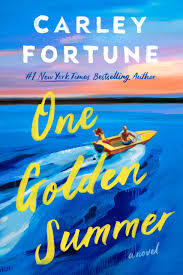
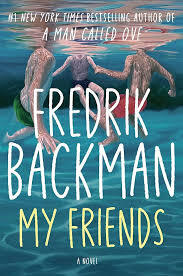




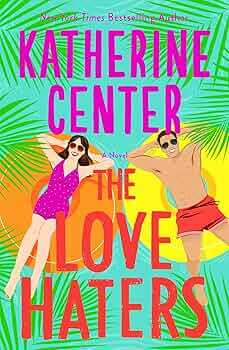

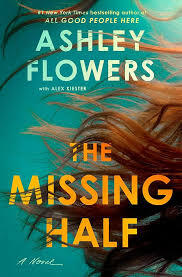




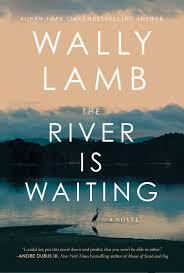

 Broken Souls and Bones (Stonegate #1), L. J. AndrewsThe Tenant, Frieda McFaddenOne Golden Summer, Carley FortuneMy Friends, Frederik BackmanThe Knight and the Moth (Stonewater Kingdom #1), Rachel GilligRewind It Back, Liz TomfordeThe Emperor of Gladness, Ocean VuongIt’s a Love Story, Annabel MonaghanThe Love Haters, Katherine CarterA Curse Carved in Bone (Saga of the Unfated #2), Danielle L. JensenThe Missing Half, Ashley FlowersThe Names, Florence KnappThe Raven Scholar, Antonia HodgsonThe Man Made of Smoke, Alex NorthRun for the Hills, Kevin WilsonThe River Is Waiting, Wally LambThe Incandescent, Emily TeshThe Martha’s Vineyard BEach and Book Club, Martha Hall Kelly
Broken Souls and Bones (Stonegate #1), L. J. AndrewsThe Tenant, Frieda McFaddenOne Golden Summer, Carley FortuneMy Friends, Frederik BackmanThe Knight and the Moth (Stonewater Kingdom #1), Rachel GilligRewind It Back, Liz TomfordeThe Emperor of Gladness, Ocean VuongIt’s a Love Story, Annabel MonaghanThe Love Haters, Katherine CarterA Curse Carved in Bone (Saga of the Unfated #2), Danielle L. JensenThe Missing Half, Ashley FlowersThe Names, Florence KnappThe Raven Scholar, Antonia HodgsonThe Man Made of Smoke, Alex NorthRun for the Hills, Kevin WilsonThe River Is Waiting, Wally LambThe Incandescent, Emily TeshThe Martha’s Vineyard BEach and Book Club, Martha Hall KellyNew to paperback:



 All Fours, Miranda JulyThe Book of Doors, Gareth BrownRemarkably Bright Creatures, Shelby Van PeltWelcome to the Hyunam-Dong Bookshop, Hwang Bo-Reum
All Fours, Miranda JulyThe Book of Doors, Gareth BrownRemarkably Bright Creatures, Shelby Van PeltWelcome to the Hyunam-Dong Bookshop, Hwang Bo-Reum

I had a great reading month in April (making up for March, maybe). Most of what I read was at least good, and I discovered a few new authors/series that I am a little crazy about. I was especially happy with the self-pubbed sensation (which is now Hachette), the Books of Babel. And then I had this ARC for the most recent Love’s Academic book. I am so into this series and will be reading Holton’s other stuff before this series has a chance to continue. It is just so. much. fun!








 Murder by Memory, Olivia WaiteThe Slighty Spooky Tale of Fox and Mole, Cecelia HeikkelaLovebirds, Hananah Zaheer
Hot Dog
, Doug SalatiSenlin Ascends (Books of Babel #1), Josiah Bancroft
The Ornithologist’s Field Guide to Love
(Love’s Academic #1), India Holton
The Geographer’s Map to Romance
(Love’s Academic #2), India Holton
Modern Poetry
, Diane Seuss
A Family Matter
, Claire Lynch
Murder by Memory, Olivia WaiteThe Slighty Spooky Tale of Fox and Mole, Cecelia HeikkelaLovebirds, Hananah Zaheer
Hot Dog
, Doug SalatiSenlin Ascends (Books of Babel #1), Josiah Bancroft
The Ornithologist’s Field Guide to Love
(Love’s Academic #1), India Holton
The Geographer’s Map to Romance
(Love’s Academic #2), India Holton
Modern Poetry
, Diane Seuss
A Family Matter
, Claire Lynch

This month I will be reading:


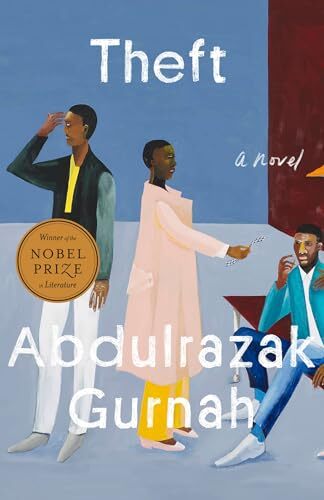




 To Shape a Dragon’s Breath, Monoquill BlackgooseParadise, Abdulrazak Gurnah (with Theft)Godkiller, Hannah KanerThe Rigor of Angels, William Egginton (possibly with Anima Rising, Christopher Moore)Demon Copperhead, Barbara Kingsolver (with David Copperfield, Charles Dickens)
To Shape a Dragon’s Breath, Monoquill BlackgooseParadise, Abdulrazak Gurnah (with Theft)Godkiller, Hannah KanerThe Rigor of Angels, William Egginton (possibly with Anima Rising, Christopher Moore)Demon Copperhead, Barbara Kingsolver (with David Copperfield, Charles Dickens)

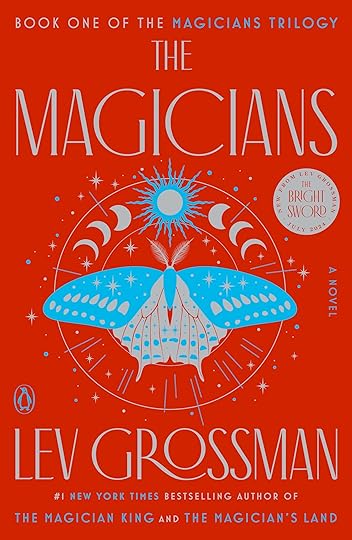









Other books that I am adding to my more immediate TBR are:
May 7, 2025
First Line: Mother-Daughter Murder Night
Mother-Daughter Murder Night has a great first line. But technically it’s the prologue. And when you combine it with the first line of chapter 1, even better.

“Beth knew she couldn’t leave for work until she dealt with the dead body on the beach” Mother-Daughter Murder Night, Nina Simon (Prologue)

“Three hundred miles south, Lana Rubicon lay sprawled on the dark slate of her kitchen, wondering how she got there.” Mother-Daughter Murder Night, Nina Simon (Chapter 1)



